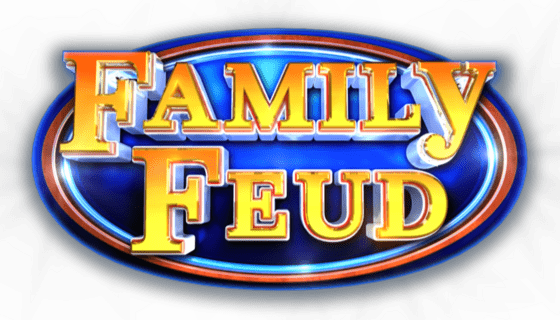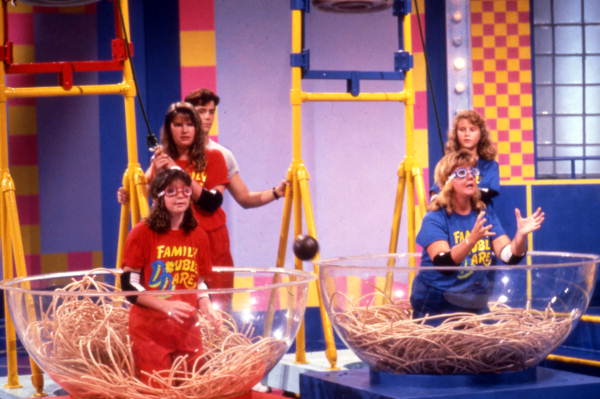The 1990s were a golden era for television, especially when it came to game shows. From high-energy competitions to brain-teasing trivia battles, the decade was packed with a variety of shows that kept viewers glued to their screens. These programs were more than just entertainment; they became a significant part of pop culture, defining the era and leaving a lasting impact on both the audience and the television industry.
In this article, we’ll take a nostalgic trip back to the 90s to explore some of the most iconic and beloved game shows of the decade. Whether you were a fan of the intense physical challenges, the strategic mind games, or the thrilling quiz formats, the 90s had something for everyone. Join us as we revisit these classics and discover why they are considered the ultimate TV game shows of the 90s.
Who Wants to Be a Millionaire
Who Wants to Be a Millionaire?” emerged as a television phenomenon in the late 90s, captivating audiences with its high-stakes quiz format and the iconic catchphrase, “Is that your final answer?” Hosted by Regis Philbin in the U.S., the show was renowned for its tension-filled atmosphere, underscored by dramatic lighting and music.
Contestants navigated a series of increasingly difficult general knowledge questions, each step bringing them closer to the ultimate one-million-dollar prize. With the strategic use of lifelines such as “Phone a Friend,” “50:50,” and “Ask the Audience,” participants had to carefully tread the fine line between risk and reward. The show’s innovative format and the emotional rollercoaster it took viewers and contestants on redefined the game show genre, making “Who Wants to Be a Millionaire?” a hallmark of 90s television and a global sensation. This game show also became more popular in the 2000s. Check out our post on the top game shows in the 2000s to discover more classic shows.
Jeopardy!
“Jeopardy!” stands as a titan in the realm of television game shows, particularly celebrated for its distinctive approach where answers are given first, and contestants respond in the form of a question. The show experienced a surge in popularity during the 90s under the adept hosting of Alex Trebek, whose intellect and charm became synonymous with the “Jeopardy!” brand.
The show’s format, consisting of a wide array of categories ranging from history and literature to science and pop culture, challenged participants to not only possess a broad knowledge base but also quick reflexes and strategic gameplay. The inclusion of the Daily Double and the high-stakes Final Jeopardy round added layers of strategy and suspense, making each episode a cerebral contest. “Jeopardy!” not only entertained but also educated, cementing its status as a beloved and enduring icon of television game shows.
Wheel of Fortune
“Wheel of Fortune” is one of the most iconic and enduring game shows in television history, captivating audiences since its inception and enjoying immense popularity throughout the 90s. Hosted by the charismatic duo of Pat Sajak and the ever-graceful letter-turner Vanna White, the show combines the thrill of gambling with the challenge of word puzzles. Contestants spin a giant wheel to determine cash prizes or penalties before guessing letters to solve phrases, titles, or names in a crossword puzzle-like format.
The excitement of the wheel’s unpredictable spins, coupled with the intellectual challenge of solving the puzzles, creates a dynamic and engaging viewing experience. The show’s simple yet brilliant premise, along with its warm and inviting hosts, has made “Wheel of Fortune” a beloved staple of family entertainment, resonating with generations of viewers. Wheel of Fortune is a classic game show that also made it to the 2010s. Find out more game shows in that decade in our article about The Game Shows That Dominated Our Screens in the 2010s.
Family Feud
“Family Feud” is a game show classic that thrived in the 90s. It is known for its engaging format that pits two families against each other in a battle of survey responses. The show’s essence lies in guessing the most popular answers to a variety of relatable and sometimes humorous questions posed to 100 people. The charm of “Family Feud” is amplified by the interaction between the host and the contestants, with the host’s comedic timing often bringing a light-hearted and jovial atmosphere to the competition.
During the 90s, the show saw several hosts, with Louie Anderson’s tenure being particularly notable for bringing a fresh and entertaining dynamic. The simplicity of its format, combined with the relatability of the questions and the familial camaraderie, has made “Family Feud” a beloved game show, offering a unique blend of entertainment that resonates across generations.
The Price is Right
“The Price Is Right” is an emblematic television game show that continued to capture hearts throughout the 90s with its distinctive blend of pricing games, audience participation, and the magnetic charm of its long-time host, Bob Barker. The show’s format invites contestants from the audience to guess the prices of various consumer products, from everyday household items to more substantial prizes like cars and vacation packages, in order to win them. Its array of mini-games, such as “Plinko,” “Cliff Hangers,” and the final “Showcase Showdown,” provide a diverse and engaging viewer experience, each with its own set of rules and excitement.
The communal atmosphere, encouraged by Barker’s catchphrase to “help control the pet population” by advising viewers to have their pets spayed or neutered, along with the genuine reactions of the contestants, made “The Price Is Right” not just a game show, but a cultural phenomenon that epitomized daytime television entertainment in the 90s and beyond.
Legends of the Hidden Temple
“Legends of the Hidden Temple” was a standout game show of the 90s, distinctively blending physical challenges with educational elements, all set within an immersive, Indiana Jones-esque temple environment. Hosted by Kirk Fogg, with the voice of Dee Bradley Baker as Olmec, a giant talking stone head, the show tasked teams of children with navigating a series of obstacle courses, puzzles, and trivia related to historical and mythological themes.
Each episode was an adventure, as teams competed to retrieve a lost artifact from the temple, facing temple guards and challenging puzzles along the way. The combination of physical endurance, mental acuity, and teamwork, along with the show’s unique setting and educational content, made “Legends of the Hidden Temple” a memorable and beloved fixture of 90s children’s television, inspiring a sense of adventure and curiosity in its young audience.
Double Dare
“Double Dare” epitomized the quintessential 90s children’s game show with its unique blend of trivia, physical challenges, and the unforgettable, messy obstacles that became its hallmark. Hosted by Marc Summers, the show was a frenetic and exciting competition where teams of kids answered questions or faced daring physical challenges, often involving slime, foam, and various other messy substances.
The climax of each episode was the iconic obstacle course, where contestants raced against the clock to navigate through slippery slides, climbable structures, and goo-filled tanks to win prizes. “Double Dare” was more than just entertainment; it was a cultural phenomenon that encouraged fun, teamwork, and a little bit of mess, making it a fondly remembered and defining part of many 90s kids’ childhoods.
Supermarket Sweep
“Supermarket Sweep” was a game show that uniquely combined the excitement of a quiz show with the frenetic energy of a shopping spree, making it a standout hit in the 90s. Contestants began by answering food and merchandise-related trivia, accumulating time that would later be used in the “Big Sweep,” a frantic dash through the aisles of a mock supermarket, where teams would fill their carts with the most valuable items to tally up the highest total.
Hosted by David Ruprecht, the show was known for its upbeat pace and the strategic element of choosing high-ticket items or hunting for special bonus products to boost scores. The visual of contestants racing down supermarket aisles, grabbing products, and the strategic decisions involved in maximizing their cart’s value captured the viewers’ imagination, making “Supermarket Sweep” a beloved and memorable part of 90s television culture.
Win, Lose, or Draw
“Win, Lose or Draw” brought the classic parlor game of charades into the living rooms of television audiences, with a unique twist that involved drawing rather than acting out clues. Premiering in the late 1980s and continuing its popularity into the 90s, the show featured teams composed of a celebrity guest and a contestant working together to guess phrases, titles, or names based on sketches drawn by one another within a limited time frame.
The show’s casual and friendly atmosphere was enhanced by its set, which was designed to resemble a cozy living room, making viewers feel as if they were part of a fun gathering of friends. Hosted by figures like Vicki Lawrence and Bert Convy, “Win, Lose or Draw” was celebrated for its engaging blend of creativity, quick thinking, and the humorous mishaps that often accompanied the frantic attempts at drawing under pressure. This format not only entertained but also showcased the universal appeal and hilarity of visual communication gone awry, securing its place as a cherished component of 90s game show history.
Guts
“Guts” brought an innovative and dynamic twist to children’s game shows in the 90s, combining physical challenges with a sports-like atmosphere that set it apart from its contemporaries. Hosted by Mike O’Malley, with Moira “Mo” Quirk as the official scorekeeper, the show featured young athletes competing in a series of extreme sports challenges, from climbing the Aggro Crag, a massive artificial mountain, to various other high-energy activities that tested their strength, speed, and agility.
Set in a stadium-like arena, complete with a cheering audience, “Guts” was presented much like a professional sporting event, complete with commentary and post-event interviews, giving kids a chance to feel like sports stars. The show not only entertained but also inspired a sense of athleticism and fair play, making “Guts” a memorable and motivational part of 90s Nickelodeon programming.
Conclusion
In reflecting on the diverse array of game shows from the 90s, it’s clear why this era is often celebrated as a golden age of television entertainment. From the high-stakes drama of “Who Wants to Be a Millionaire?” to the creative and physical challenges of “Double Dare” and “Guts,” each show brought its unique flavor to the screen, captivating audiences of all ages. These programs not only provided entertainment but also shaped a generation, leaving lasting memories and a sense of nostalgia for those who grew up during this time.
As we look back, the ultimate TV game shows of the 90s remind us of the simplicity, excitement, and communal joy of gathering around the television, eagerly awaiting the next challenge, the next laugh, and the next big win.


